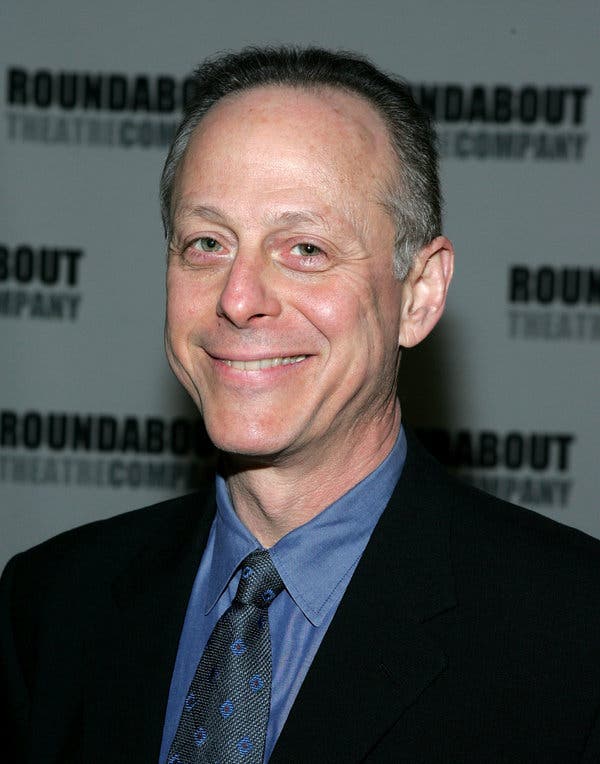
Remembering Mark Blum

Age 69, New York City
Passed away on March 25, 2020
Mark Blum, an Obie Award-winning New York stage and screen actor whose roles ranged from highly flawed husbands to overconfident blowhards, died on Wednesday in Manhattan. He was 69.
The actor Lee Wilkof, a close family friend, said the cause was complications of the coronavirus. Mr. Blum also had asthma.
Mr. Blum was an omnipresent figure in the Off Broadway world for decades, but his biggest moment in the spotlight came in 1989 after he played a time-traveling 20th-century playwright who befriends Gustav Mahler, in the Playwrights Horizons production of Albert Innaurato’s “Gus and Al.”
Frank Rich, in his review in The New York Times, referred to Mr. Blum’s “appealing, weary-eyed portrayal” and saw Al’s self-martyrdom as a form of “rueful hypersensitivity to the modern world.”
At the Obie ceremony, Mr. Blum was given one of 13 uncategorized Off Broadway performance awards for that season. His fellow winners included Nancy Marchand and Fyvush Finkel.
He had a notable Broadway career as well, appearing in nine productions over three and a half decades. He made his Broadway debut as a particularly versatile theater professional — playing an unnamed Venetian (one of four), understudying two roles and acting as assistant stage manager in “The Merchant” (1977), set in 16th-century Venice and inspired by a certain Shakespearean classic.
Other Broadway roles included Eddie, the young main character’s recently widowed and debt-ridden father, in Neil Simon’s “Lost in Yonkers” (1991), with Irene Worth; Spalding Gray’s campaign manager in “Gore Vidal’s The Best Man” (2000), a role he reprised as a replacement in the 2012 revival; Leo Herman, a.k.a. Chuckles the Chipmunk, the detestable host of a children’s television show, in “A Thousand Clowns” (2001); and Juror No. 1, the reasonable foreman, in “Twelve Angry Men” (2004).
At his death, he was an acting teacher at HB Studio in New York, where he headed the yearlong core training program named for Uta Hagen, and a faculty member at Brooklyn College.
In a video for HB, he reflected on one aspect of the study of acting.
“What is the journey of self-discovery that you begin on that allows you to join your own curiosity about who you are with your curiosity about what the human race is — and how to channel that into the work?”
Mark Blum, an Obie Award-winning New York stage and screen actor whose roles ranged from highly flawed husbands to overconfident blowhards, died on Wednesday in Manhattan. He was 69.
The actor Lee Wilkof, a close family friend, said the cause was complications of the coronavirus. Mr. Blum also had asthma.
Mr. Blum was an omnipresent figure in the Off Broadway world for decades, but his biggest moment in the spotlight came in 1989 after he played a time-traveling 20th-century playwright who befriends Gustav Mahler, in the Playwrights Horizons production of Albert Innaurato’s “Gus and Al.”
Frank Rich, in his review in The New York Times, referred to Mr. Blum’s “appealing, weary-eyed portrayal” and saw Al’s self-martyrdom as a form of “rueful hypersensitivity to the modern world.”
At the Obie ceremony, Mr. Blum was given one of 13 uncategorized Off Broadway performance awards for that season. His fellow winners included Nancy Marchand and Fyvush Finkel.
He had a notable Broadway career as well, appearing in nine productions over three and a half decades. He made his Broadway debut as a particularly versatile theater professional — playing an unnamed Venetian (one of four), understudying two roles and acting as assistant stage manager in “The Merchant” (1977), set in 16th-century Venice and inspired by a certain Shakespearean classic.
Other Broadway roles included Eddie, the young main character’s recently widowed and debt-ridden father, in Neil Simon’s “Lost in Yonkers” (1991), with Irene Worth; Spalding Gray’s campaign manager in “Gore Vidal’s The Best Man” (2000), a role he reprised as a replacement in the 2012 revival; Leo Herman, a.k.a. Chuckles the Chipmunk, the detestable host of a children’s television show, in “A Thousand Clowns” (2001); and Juror No. 1, the reasonable foreman, in “Twelve Angry Men” (2004).
At his death, he was an acting teacher at HB Studio in New York, where he headed the yearlong core training program named for Uta Hagen, and a faculty member at Brooklyn College.
In a video for HB, he reflected on one aspect of the study of acting.
“What is the journey of self-discovery that you begin on that allows you to join your own curiosity about who you are with your curiosity about what the human race is — and how to channel that into the work?”
Share your thoughts about Mark's life...